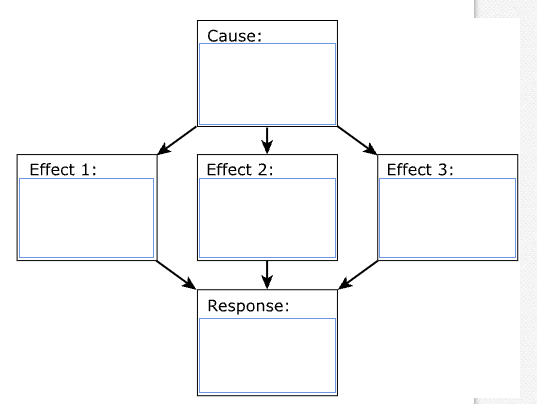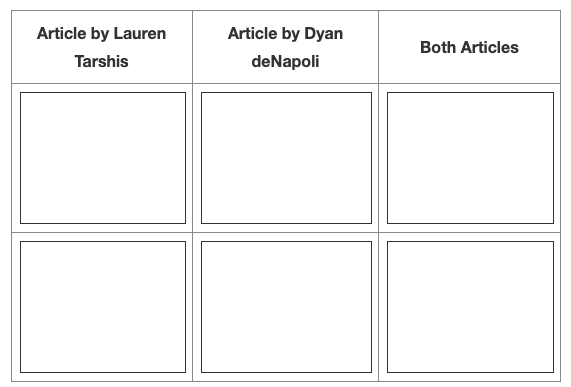*Ida B passage, followed by Moon Over Manifest passage*
from Ida B
1 Saturday morning, I was sitting on the front porch, waiting for nothing, with nothing I wanted to do. Rufus sat beside me for a while, hoping I’d be up to something more than misery. But he got tired of waiting and went off on his own, leaving a small sea of spit where he’d been sitting.
2 Just as I was about to take myself back to bed and try starting the day over again in the afternoon, I saw the big white car come down the road and turn left at the T. And right away, I knew what I had to do.
3 No plans. No least-possible-pain-and-humiliation scheming. Just plain and straight do the deed.
4 As soon as the white car disappeared down the DeLunas’ drive, I picked myself up and headed out through the fields, then around the base of the mountain.
5 I walked through the orchard, eyes fixed forward, not slow and not rushed, either. Like I was on my way to the final showdown. Yes, there was a bunch of them and only one of me. Yes, they might ambush me, and I might not come back in one piece. But I’d take whatever those people needed to dish out, because I was going to do the right thing.
6 I stopped just before I stepped onto the land that now belonged to the DeLunas, and took a deep breath as I walked over that invisible boundary line.
7 And there was Claire straight ahead, looking at me, waiting for me. Her mom and little brother were crouched down at the side of the house, planting little bushes.
8 Clump . . . clump . . . clump . . . was the only sound my feet were making this time as I walked toward Claire, arms out from my sides and palms up, letting her know that I wasn’t coming for a fight, even if she had some trouble and torture she needed to visit on me.
9 Claire’s mother spotted me and stood, dusted off her hands, and watched as I walked up to Claire. Then all of the world was still except for the two of us.
10 “Claire,” I said, making myself look her in the eye, “I’m sorry I scared you in the woods. I’m sorry I was mean to you. I was following you in school so I could apologize. I . . . I . . .” And there I was, babbling again. Should I tell her about Mama and the trees and school and everything? Where would I start if I was going to explain it all?
11 Then Ms. W. came into my head and I knew it didn’t really matter.
12 “I’m just sorry,” I said.
13 Sometimes, on spring days, there will be the brightest, warmest sun and the darkest, rainiest clouds sharing the sky. All day long you wonder, “Will it rain? Will it shine?” And that’s what I was thinking then, while I was looking at Claire’s face. Everything was there, but nothing was happening one way or the other. I couldn’t hang around any longer to see what would win out, though, because I had something else to do.
14 I turned to Claire’s little brother, who had his arm around his mama’s leg, and I could see that he was scared of me. He thought I was a monster, just like I’d wanted him to.
15 “I’m sorry I scared you,” I said. “I won’t ever do it again. I promise.”
16 And he just stared at me, too. If I didn’t know better, I would have thought that this family’s mouths were under repair.
17 It was too hard waiting there for those people to decide if they wanted to tell me something, and I wasn’t quite sure I could stand to hear the words they might want to say anyway. So I turned back to the orchard and started home.
18 I braced myself for a DeLuna ambush from behind and decided that when Mama and Daddy found me, just holding on to a tiny sliver of life, my last words would be, “Turn the land into a park, teach Rufus some mouth-related manners, and make sure Lulu gets her treats. Please.”
19 But I got to the property line without harm or hollering, and by the time I crossed it, I did feel better. Like my heart was heavier and lighter at the same time.
20 Apologizing is like spring-cleaning. First of all, you don’t want to do it. But there’s something inside you, or somebody outside you who’s standing there with her hands on her hips saying, “It’s time to make things right around here,” and there’s no getting out of it.
21 Once you get started, though, you find out that you can’t just clean out one room and be done with it; you have to do the whole house or you’re tracking dirt from one place to the other. Well, it starts to seem like too, too much, and you want to quit more than Christmas. But there’s that somebody or something telling you again, “Keep going. You’re almost done. No quitting allowed.”
Passage from Ida B by Katherine Hannigan, text copyright © 2004 by Katherine Hannigan. Used by permission of HarperCollins Publishers.
from Moon Over Manifest
1 The movement of the train rocked me like a lullaby. I closed my eyes to the dusty countryside and imagined the sign I knew only from stories. The one just outside of town with big blue letters: MANIFEST: A TOWN WITH A RICH PAST AND A BRIGHT FUTURE.
2 I thought about my daddy, Gideon Tucker. He does his best talking in stories, but in recent weeks, those had become few and far between. So on the occasion when he’d say to me, “Abilene, did I ever tell you ’bout the time. . .?” I’d get all quiet and listen real hard. Mostly he’d tell stories about Manifest, the town where he’d lived once upon a time.
3 His words drew pictures of brightly painted storefronts and bustling townsfolk. Hearing Gideon tell about it was like sucking on butterscotch. Smooth and sweet. And when he’d go back to not saying much, I’d try recalling what it tasted like. Maybe that was how I found comfort then, even with him being so far away. By remembering the flavor of his words. But mostly, I could taste the sadness in his voice when he told me I couldn’t stay with him for the summer while he worked a railroad job back in Iowa. Something had changed in him. It started the day I got a cut on my knee. It got bad and I got real sick with infection. The doctors said I was lucky to come out of it. But it was like Gideon had gotten a wound in him too. Only he didn’t come out of it. And it was painful enough to make him send me away.
4 I reached into my satchel for the flour sack that held my few special things. A blue dress, two shiny dimes I’d earned collecting pop bottles, a letter from Gideon telling folks that I would be received by Pastor Howard at the Manifest depot, and my most special something, kept in a box lined with an old 1917 Manifest Herald newspaper: my daddy’s compass.
5 In a gold case, it wore like a pocket watch, but inside was a compass showing every direction. Only problem was, a working compass always points north. This one, the arrow dangled and jiggled every which way. It wasn’t even that old. It had the compass maker’s name and the date it was made on the inside. St. Dizier, October 8, 1918. Gideon had always planned to get it fixed, but when I was leaving, he said he didn’t need it anyway, what with train tracks to guide him. Still, I liked imagining that the chain of that broken compass was long enough to stretch all the way back into his pocket, with him at one end and me at the other.
6 Smoothing out the yellowed newspaper for the thousandth time, I scanned the page, hoping to find some bit of news about or insight into my daddy. But there was only the same old “Hogs and Cattle” report on one side and a “Hattie Mae’s News Auxiliary: Charter Edition” on the other, plus a couple of advertisements for Liberty Bonds and Billy Bump’s Hair Tonic. I didn’t know anything about Hattie Mae Harper, except what she wrote in her article, but I figured her newspaper column had protected Gideon’s compass for some time, and for that l felt a sense of gratitude. I carefully placed the newspaper back in the box and stored the box in the satchel, but held on to the compass. I guess I needed to hold on to something.
7 The conductor came into the car, “Manifest, next stop.”
8 The seven-forty-five evening train was going to be right on time. Conductors only gave a few minutes’ notice, so I had to hurry. I shoved the compass into a side pocket of the satchel, then made my way to the back of the last car. Being a paying customer this time, with a full-fledged ticket, I didn’t have to jump off, and I knew that the preacher would be waiting for me. But as anyone worth his salt knows, it’s best to get a look at a place before it gets a look at you. I’d worn my overalls just for the occasion. Besides, it wouldn’t be dark for another hour, so I’d have time to find my way around.
9 At the last car, I waited, listening the way I’d been taught—wait till the clack of the train wheels slows to the rhythm of your heartbeat. The trouble is my heart speeds up when I’m looking at the ground rushing by. Finally, I saw a grassy spot and jumped. The ground came quick and hard, but I landed and rolled as the train lumbered on without a thank-you or goodbye.
10 As I stood and brushed myself off, there was the sign not five feet in front of me. It was so weathered there was hardly a chip of blue paint to be found. And it looked to have been shot up so bad most of the words were gone. All that was left read MANIFEST: A TOWN WITH A PAST.
Excerpt from MOON OVER MANIFEST by Clare Vanderpool, copyright © 2010 by Clare Vanderpool. Used by permission of Delacorte Press, an imprint of Random House Children’s Books, a division of Random House LLC. All rights reserved.

